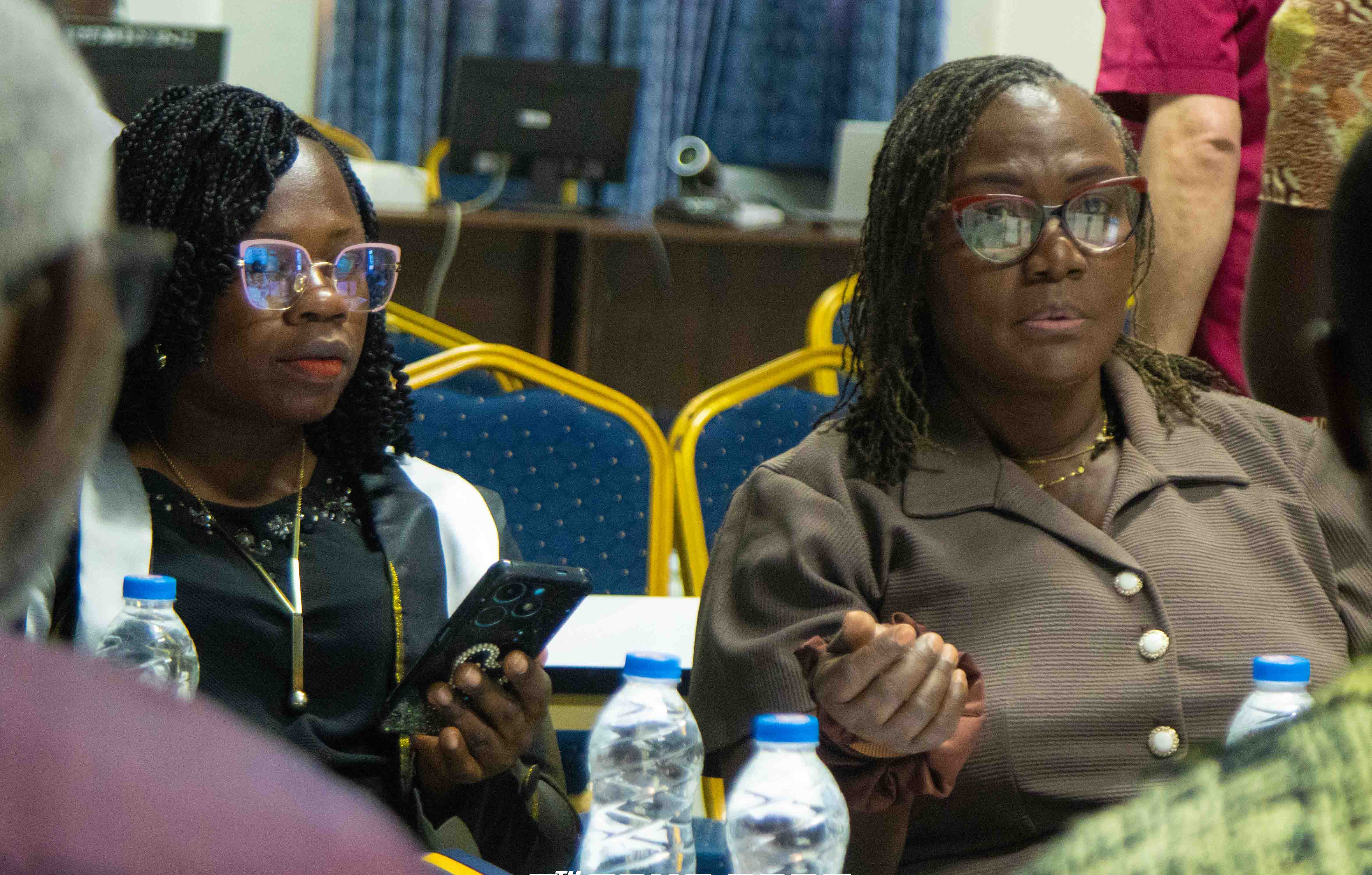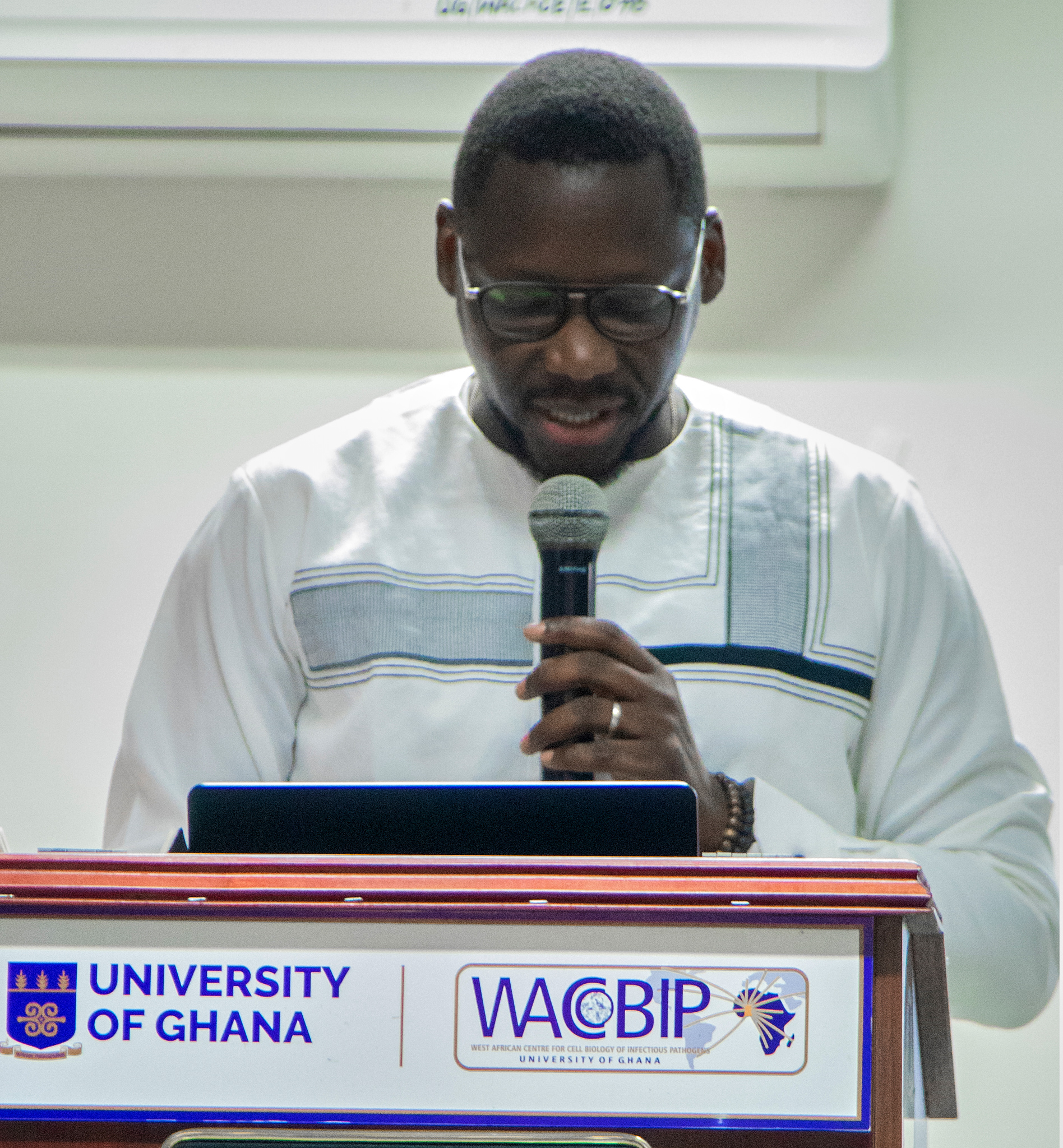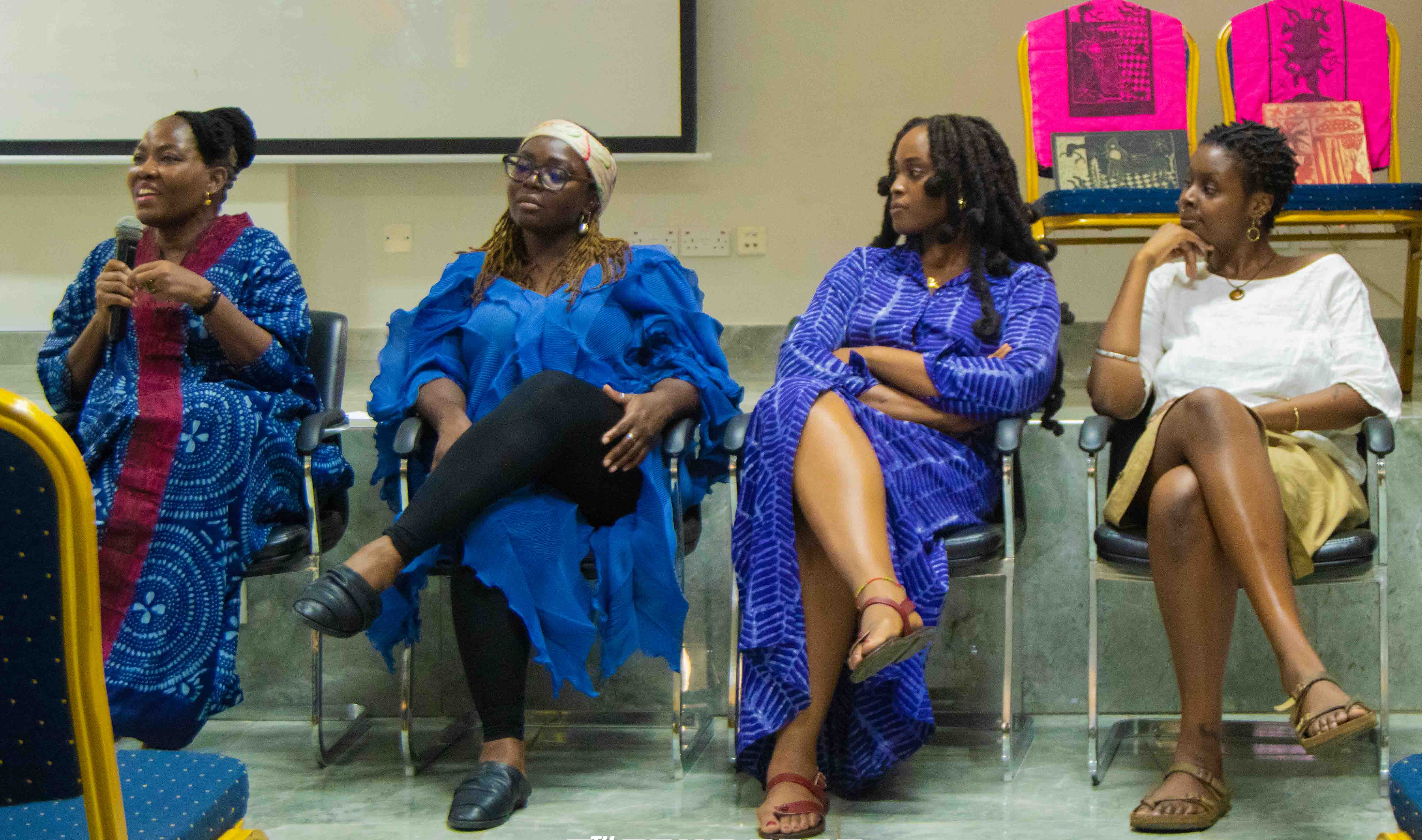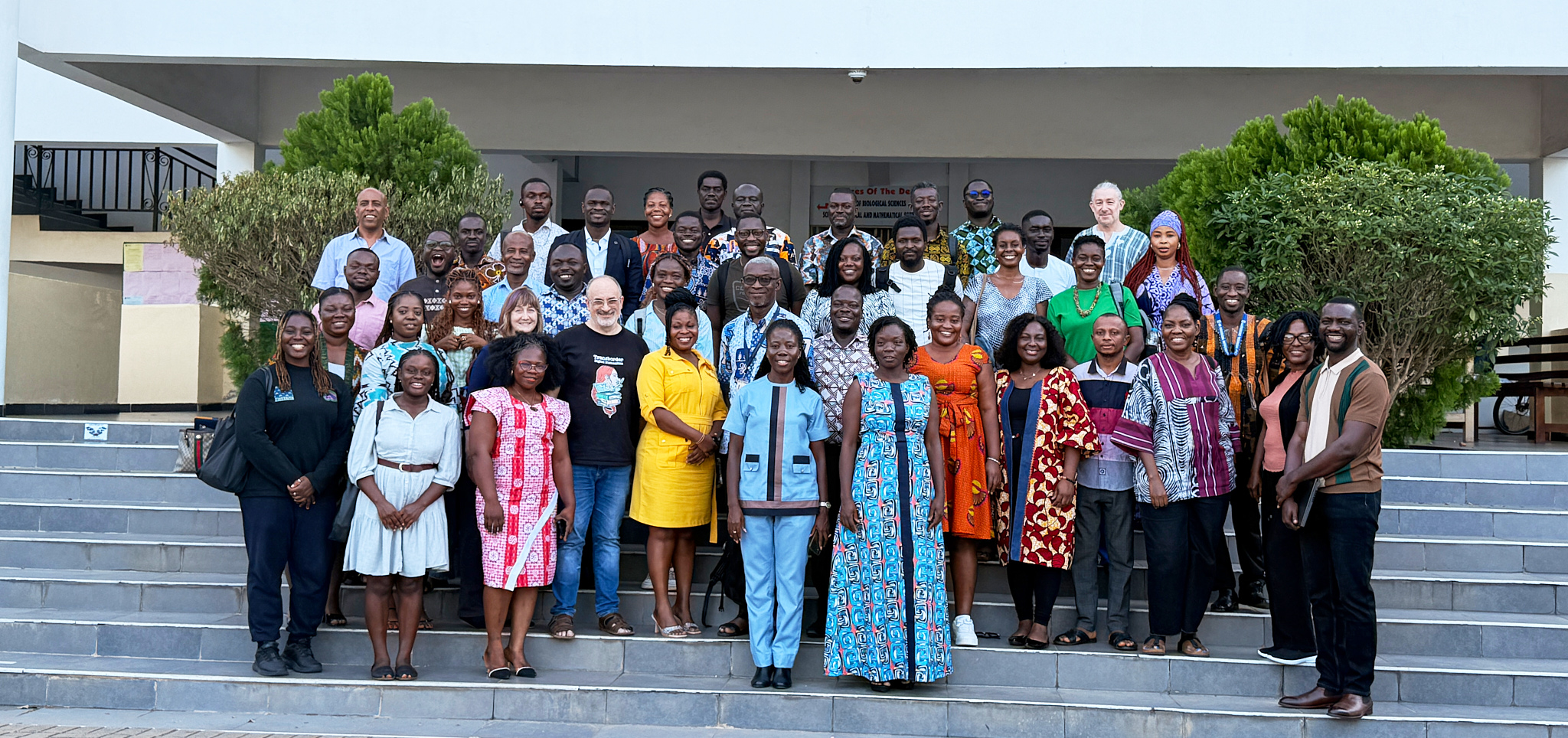The School of Information and Communication Studies (SICS), in collaboration with Kansas University (KU) and the College of Humanities, University of Ghana, has organised the second edition of the African Digital Humanities (DH) Symposium on the theme, Artificial Intelligence, Libraries and Digital Preservation in Africa. The two-day event (June 5th and 6th) was preceded by a workshop organised for librarians across southern Ghana on June 4th 2025.
The workshop was co-hosted by Carol Smith, the Dean of the KU libraries and Brian Rosenblum, Founding Co-Director of the Institute for Digital Research in the Humanities at KU. Framed as a conversational exchange workshop, the workshop centered on three main themes: the importance of libraries and librarians in knowledge advancement; the importance of collaboration with other libraries around the world to share ideas and shared challenges/innovation efforts of librarians in the global North and South.

Participants having a discussion during the workshop
The first day of the symposium began with two keynote addresses by Ademide Adelusi-Adeluyi and Karen Ijumba, both of whom use digital humanities to different ends. Adelusi-Adeluyi described using digital mapping and historical analysis to reconstruct the urban history of 19th century Lagos while Ijumba discussed the complexities of documenting restitution efforts across the continent using digital tools. Both emphasised the importance of DH for their work. This was followed by a panel on the theme Digitalising Memory and Expanding Access which focused on the use of digitisation in Nigeria and Ghana. Speakers from Nigeria, Seun Aili and Boyega Adediran, highlighted the role of digitisation in documenting Nigerian cultural life (Black Orpheus) and happenings (newspapers) respectively. The Ghanaian speakers, George Gyesaw and Edwina Ashie-Nikoi focused on digitisation at the University of Ghana highlighting various projects including the J. H. Kwabena Nketia Archive, the Adu Boahen Archive and the Making African Academic Resources Available project.

In the second panel, Tinashe Mushakavanhu presented his project on crowdsourced biography, focusing on Zimbabwean writer Dambudzo Marechera. His project invites the public to share anecdotes and stories about the author, creating a democratic and participatory archive. Allison Sanders focused on the theme of restorative data justice using evidence from her work that seeks to restore Algerian women in the existing records. Hållén emphasised the need to design metadata systems that resist replicating colonial biases. He warned that data-driven approaches could reinforce historical injustices if not critically examined. He argued that his collaboration with local cultural experts ensures that data models remain contextually grounded. The third panel focused exclusively on OlongoAfrica’s work to digitise the Black Orpheus corpus of work and to engage in a contemporary effort to document its legacy and impact. Seun Aili and Molara Wood spoke about the ethos and philosophy of both the Black Orpheus archive and the project to digitise it while Yadichinma Ukoha-Kalu and Ebunoluwa Adepoju spoke about their work as Black Orpheus Fellows.
 Panellists who presented on the Black Orpheus project answering questions during Q&A Session
Panellists who presented on the Black Orpheus project answering questions during Q&A Session
The fourth panel explored DH in Francophone Africa including the work of Augustin Ndione and Emmanuel Ngue, Senegalese and Cameroonian linguists respectively in this regard as well as the use of storymaps to teach French in the US and the efforts to use African languages for knowledge production and research in South Africa.
Day three began with two keynote addresses focusing on the future of digital humanities in Africa, specifically Ethiopia and Ghana. The presenters, Tibebe Beshah and Akosua Darkwah, emphasised the potential of DH in their respective countries and called for its adaptation to local contexts. They concluded with a call for an integrated, inclusive DH system that allows for a holistic assessment of DH efforts on the continent.
The fifth session titled Algorithms, Ethics and Epistemologies – AI in an African Frame discussed the extent to which existing algorithms reflected digital colonialism with speakers such as Oluwaseun Sanwoolu and Frank Onuh speaking for the motion and Oluwakorede Ajibona speaking against the motion. The sixth panel on the theme libraries, partnerships and digital sustainability spoke to various ways in which libraries could work in partnership to ensure digital sustainability.

Panel that presented Algorithms, Ethics and Epistemologies – AI in an African Frame answering questions during Q&A Session
This included discussions of the work of the Consortium of Academic and Research Libraries in Ghana (CARLIGH) as well as the Kenyan virtual library. The seventh session drew on the experiences of DH scholars in Argentina (Gimena del Rio Rande), India (Nirmala Menon), Mexico (Miriam Pena Pementel), Nigeria (Tunde Ope-Davies) and Puerto Rico (Alex Gil) to emphasise the importance of collaborative efforts and starting small given the resource constraints that DH enthusiasts in the global South face.
The symposium ended with a call to action for African scholars and institutions to take ownership of AI’s integration into knowledge management. Participants were encouraged to collaborate, advocate for inclusive AI design, and document their projects for future generations. The event underscored the shared commitment to building sustainable, African-centred digital infrastructure. The two-day symposium ended at 4:00 pm with a group photo.


